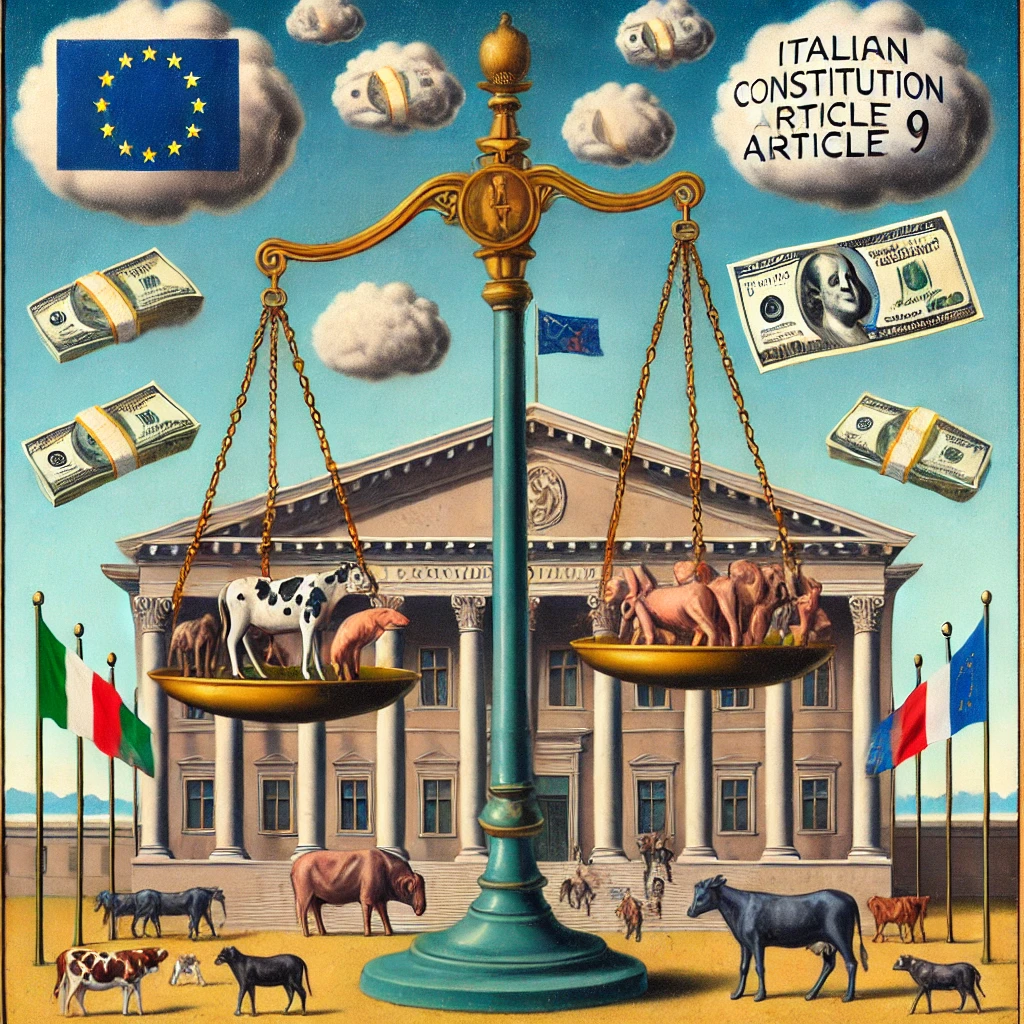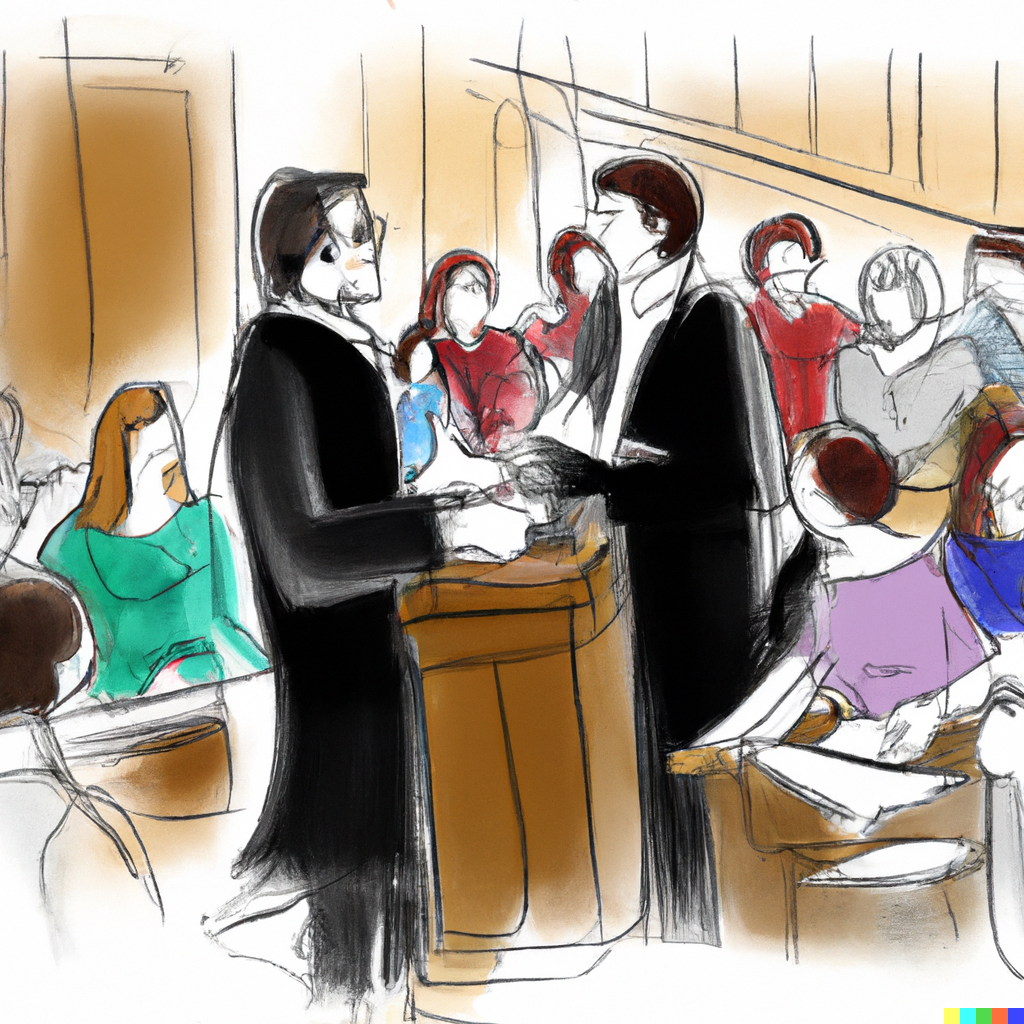Fundamental Rights and Freedoms

Protection of animal welfare and economic interests between national and EU law
Micaela Lottini | 22 July 2024 | Not Yet in an issue
Section III of the Council of State, in an order of July 2023, states that article 9 of the Constitution, as amended, has effectively included the protection of animals among the so-called ‘supreme principles’; consequently, animal’s interests (and in particular their loss of life) can be affected only following a rigorous evaluation of the necessity and proportionality of the measure to be adopted, in particular when the human interest at stake is purely economic.
Read More
Decision-making with AI: a problem common to all domains of research
Diana-Urania Galetta | 3 June 2024 | Issue 2/2024
Starting from the issues related to the development of “robotics”, the paper explains how decision-making with AI poses problems across disciplines and law can provide the right coordinates to navigate the challenges. “Law” can be called upon to “justify, regulate, and direct the courses of action” when Artificial Intelligence is implemented as a decision-making instrument that impacts a variety of facets of individual coexistence.
Read More
Current Challenges for the Rule of Law and the Role of the Judiciary in Europe
Thomas von Danwitz | 15 January 2024 | Issue 1/2024
In the following paper I will focus on the understanding, components, and contingent elements that have defined the evolution of the rule of law that has dominated legal and judicial practice for the better part of a decade now, especially in Europe. It goes without saying that in an undertaking of this nature, the selection of relevant aspects and, more importantly, the considerations associated with them are not immune to a perspective that is closely aligned with the duties of a judge at the Court of Justice of the European Union. In view of the particular relevance of recent developments in the rule of law in third countries, namely in the USA and Israel, it seems appropriate to also include these in the analysis.
Read More
The EU Charter of Fundamental Rights in constitutional adjudication. The Italian perspective
Barbara Randazzo | 18 December 2023 | Issue 4/2023
This study aims to critically examine the influence of the European Union’s Charter of Fundamental Rights on the Italian constitutional adjudication system. The EU Charter’s substantive constitutional nature and the significant overlap between its guarantees and those found in the Italian Constitution will be taken into consideration as the Italian Constitutional Court highlights its most recent approaches to the Charter of Fundamental Rights. The analysis will demonstrate how, in general, the Italian Constitutional Court’s approach to the Court of Justice is one of open communication and cooperation. With reference to the so-called counter-limits doctrine, it will also highlight the critical roles that the two courts have played in defining the components of national identity and shared constitutional traditions.
Read More
The 2023 Australian Referendum: a proposal for an Indigenous Voice to Parliament and Government
Elisa Arcioni, Andrew Edgar | 9 November 2023 | Issue 4/2023
On October 14, 2023, Australian electors voted in a referendum regarding a proposal to change the Constitution by explicitly recognising Aboriginal and Torres Strait Islander people through the insertion of a Voice to Parliament and Government. A majority of electors in each State voted against the change, as did a majority of electors nationally. Therefore, the referendum failed. This article explains the proposal from a public law perspective and includes brief reflections regarding the public debate surrounding the referendum.
Read More
This essay concerns the protection of freedom of expression in the EU legal system. The paper aims to identify the limits of, and possible restrictions to, this fundamental right. The paper focuses on the reaction of the European Union to the regime propaganda promoted by several Russian broadcasters to justify the attack on Ukraine. The paper has three aims. First, the paper evaluates whether the limitations on freedom of information, contained in the EU sanctions, represents a novelty in European law regarding human rights. Second, the paper highlights the recent trends in European jurisprudence regarding the protection of freedom of expression (“hate speech” and “fake news”), and considers their interaction with the recent sanctions of the European Council. Finally, the paper addresses whether the EU General Court, called upon to assess the legitimacy of these sanctions, followed the established process to conclude that the compression of freedom of expression is justified.
Read More
Wild animals and their protection: between new regulations and ancient problems
Micaela Lottini | 1 September 2023 | Issue 3/2023
Section I of the Regional Administrative Court for Umbria in a recent case reaffirms the non-binding nature of the opinion of the national Institute for Environmental Protection and Research on the hunting calendar drafted by the Region under the provisions of law n. 157 of 1992, Rules for the protection of warm-blooded wildlife and for hunting. The ruling provides an opportunity to reflect on the state of legal protection of wild animals at national and EU level, in light of constitutional reform and recent regulatory amendments.
Read More
Sanctions in the context of urban planning and proportionality, in light of supranational principles
Alberto Di Mario | 27 May 2023 | Issue 2/2023
The contribution deals with the application of the principle of proportionality in the jurisprudence developed by national courts, the Court of Justice and the European Court of Human Rights to sanctions in the context of urban planning and construction. To this end, it first analyses the traditional categories of sanctions as they have been developed by national case-law. Secondly, it evaluates whether and how the principles developed by CJEU and ECHR have led to change.
Read More
Images from a possible future: the paradigm of legal standing
Pier Luigi Portaluri | 18 May 2023 | Issue 2/2023
In the Italian legal system – a constitutional State that has emerged from the ferocious totalitarianisms of the 20th century – access to judges is filtered by a control of worthiness that is based on indeterminate concepts, namely variable and personal tables of values. It is therefore possible – necessary, perhaps – to use the paradigm of legitimacy to argue for a broadening of access. It is necessary to loosen, if not quite sever, the hitherto tight and suffocating bond between the proximity of the subject to the physical place where the administrative decision impacts, and the actionability of the claim. There is a minimum objective, recently framed by the Plenary Assembly of the Council of State: to understand vicinitas in terms of contiguity that is no longer only material, but also axiological. And then a more ambitious one: to “de-subjectivise” the claim, to the point of configuring trans-subjective rights, that is, “without master”.
Read More
The hearing of argument in administrative litigation as a human right: a comparison of the Slovenian and Italian systems
Bruna Žuber, Giacomo Biasutti | 1 May 2023 | Issue 2/2023
The article aims to explore the role of oral hearing in Slovenian and Italian administrative procedural law. In both countries the oral hearing is a pivotal moment in the judicial review of administrative decisions. The study aims to identify common elements in each system to determine a unitary content of oral hearing as a human right.
Read More